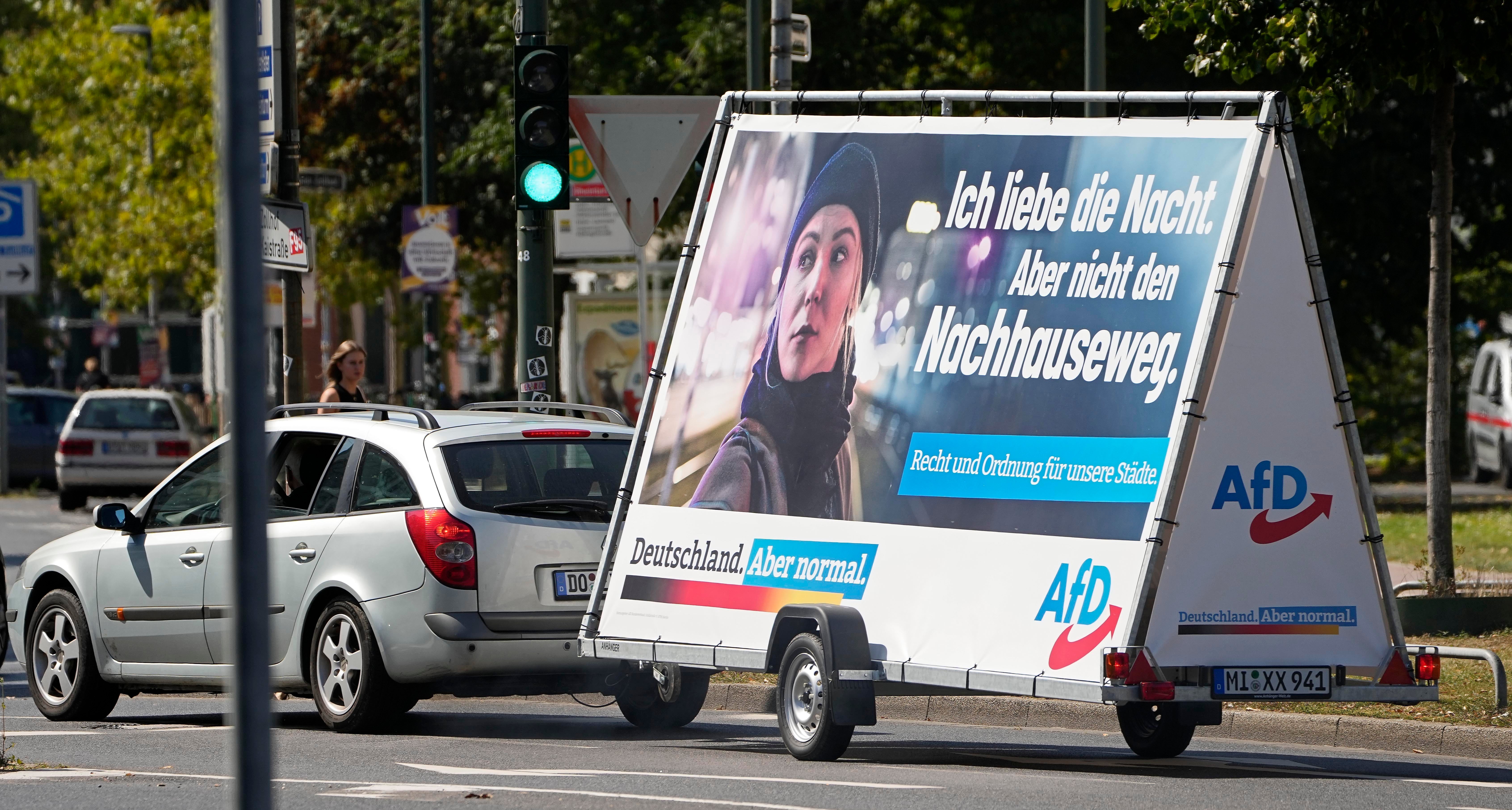Sidelined by rivals, Germany's far-right AfD bides time
Migration is a side issue in this year’s German election campaign, but that hasn’t stopped the country’s biggest far-right party from trying to play it up

Your support helps us to tell the story
From reproductive rights to climate change to Big Tech, The Independent is on the ground when the story is developing. Whether it's investigating the financials of Elon Musk's pro-Trump PAC or producing our latest documentary, 'The A Word', which shines a light on the American women fighting for reproductive rights, we know how important it is to parse out the facts from the messaging.
At such a critical moment in US history, we need reporters on the ground. Your donation allows us to keep sending journalists to speak to both sides of the story.
The Independent is trusted by Americans across the entire political spectrum. And unlike many other quality news outlets, we choose not to lock Americans out of our reporting and analysis with paywalls. We believe quality journalism should be available to everyone, paid for by those who can afford it.
Your support makes all the difference.Migration is a side issue in this year's German election campaign, but that hasn't stopped the country's biggest far-right party from trying to play it up.
“Cologne, Kassel or Konstanz can't cope with more Kabul,” Alternative for Germany declared on one of its election posters — a reference to the government's decision to take in Afghans who had worked for the German military or aid groups before the Taliban takeover.
Another, showing a retired couple embracing on a pier, read: “We'll share our pensions, but not with the whole world. Solidarity has its limits.”
The party rattled Germany's political establishment four years ago, when it came third in parliamentary elections after stoking anti-migrant sentiment over Chancellor Angela Merkel s 2015 decision to allow hundreds of thousands of people fleeing war and poverty into the country.
“The 2017 election was strongly influenced by refugee and migration politics,” said Hendrik Traeger, a political scientist at the University of Leipzig. “Alternative for Germany made that its core issue. This time it’s not among the top three election topics though.”
Current polls indicate that the party, known by its German acronym AfD could struggle to hold the 12.6% share of the vote it got four years ago — though researchers note that respondents don't always admit in surveys that they'll vote for the party.
Still, even with a low two-digit result AfD could well pose a headache for other parties, forcing them to form larger, more cumbersome coalitions to secure a majority.
“Some constituencies might see a close race between the Christian Democrats, the Social Democrats and AfD,” said Traeger.
Small shifts in voting patterns of just a few hundred ballots could swing marginal constituencies in unexpected ways, making some coalitions at the national level harder or impossible, he said.
AfD's co-leader, Tino Chrupalla, has no illusions that his party will win big on Sept. 26. But he's confident that it can enter government in one of Germany's 16 states in the coming years.
Armin Laschet, who leads the center-right Union bloc, has said his party will not ally with AfD, which opposes the government's coronavirus policies, has a cozy relationship with Russia and wants Germany to quit the European Union.
That pledge will be put to the test in eastern states such as Saxony, where AfD came a strong second with 27.5% of the vote in a state election two years ago.
“I'm pretty confident that sooner or later there's no way around Alternative for Germany,” Chrupalla told reporters Wednesday. “That will certainly happen first in a state parliament.”
Chrupalla said he already has a lot of contact with Union politicians and sees common ground with candidates such as Hans-Georg Maassen, Germany's former domestic intelligence chief now running for a seat in parliament's lower house, the Bundestag, on an anti-immigration platform. Many in Maassen's party aren't happy about his candidacy.
“Of course there are many positions where I can agree with Mr. Maassen,” said Chrupalla. “And conversely, he could do so with many of our positions.”
___
Follow AP’s coverage of Germany’s election at https://apnews.com/hub/germany-election